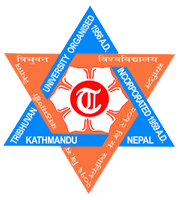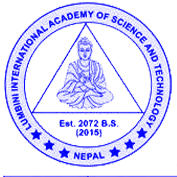Overview
Overviews of Master in Geoinformatics at Nepal Open University, Man Bhaban, Lalitpur, Nepal (affiliated with Nepal Open University)
Program Overview
The Master in Geoinformatics at Nepal Open University is a two-year distance learning program designed for students who wish to advance their education in geoinformatics after obtaining their bachelor’s degree. This program enhances analytic capabilities and problem-solving skills, preparing students for diverse careers.
Focus Areas
This degree emphasizes understanding the geographical, organizational, and technical aspects of geographic information systems (GIS) and science. Key skills developed include the visualization of geographic information and map design. The curriculum comprises visualization, analysis, and spatial information management courses supported by individual design projects, hands-on exercises, and analysis tasks.
Benefits of the Program
Graduates with a Master's in Geoinformatics gain a competitive edge in the job market, are prepared for leadership positions, and typically command higher salaries. The program equips them to tackle real-world problems with enhanced analytical skills that are valuable in various aspects of life.
Eligibility Requirements
Minimum Requirement:
-
Bachelor’s degree in any discipline with a minimum second division or 2.4 GPA.
Admission Criteria
-
Students must pass an entrance test to join the program.
Syllabus for Entrance Test
Full Marks: 100
Number of Questions (Objective Based): 100
Medium of Test: English
Duration of Examination: 2 Hours
1. Elementary Mathematics (25 Marks)
Topics: Measurement of percentage, area, volume, simple quadratic equations, height & distance, solution of triangles, properties of triangles, circle, probability, mean, mode & standard deviation, basic geometry, basic knowledge of plane & polar co-ordinates systems, equation of straight line, circle, parabola, concept of vector, differentiation, limit & continuity, maxima & minima.
2. Optics & Electronics (10 Marks)
Topics: Fundamental knowledge of light rays, mirrors, lenses, prism, spectrum, frequency, wavelength, and radiation.
3. Surveying & Mapping (50 Marks)
Topics:
Basic knowledge of surveying & mapping, fundamental knowledge of GIS (definitions, data acquisition techniques, sensor systems, spatial and non-spatial data, data transformation, visualization of spatial data, map design, data classification & spatial analysis), introduction to Global Navigation Support System (GNSS), basic knowledge of digital image processing.
Additional Topics:
Fundamental knowledge of remote sensing, application area of remote sensing, and GIS (forestry, agriculture, environmental science, disaster, land classification & human settlement).
4. General Knowledge (5 Marks)
-
Topics: Topography of Nepal, resources of Nepal, geography of the world & Nepal, population, professional organizations (FIG, ISPRS, NASA, NRSPRS, Nepal GIS Society, etc.).
5. Communication Skills (10 Marks)
Topics: Basic grammar in English language, basic writing skills, English language, basic vocabulary, basic knowledge of computer skills.
Job Prospects
Graduates with a Master's in Geoinformatics have numerous career opportunities. They can work in various fields, such as mapping and surveying, resource management, planning and zoning, ecology and conservation, and forestry and agriculture. Potential employers include governmental organizations, private companies, universities, and research institutes.
Conclusion
The Master in Geoinformatics at Nepal Open University is an ideal program for individuals seeking to deepen their knowledge and skills in geographic information systems and science. It provides a robust foundation for a successful career in various industries and offers theoretical and practical expertise. For more details, visit the Nepal Open University website or contact the administration.
Contact Nepal Open University's administrative office for detailed information on the Master in Geoinformatics course, including fees, scholarships, facilities, counseling, eligibility criteria, etc.
















